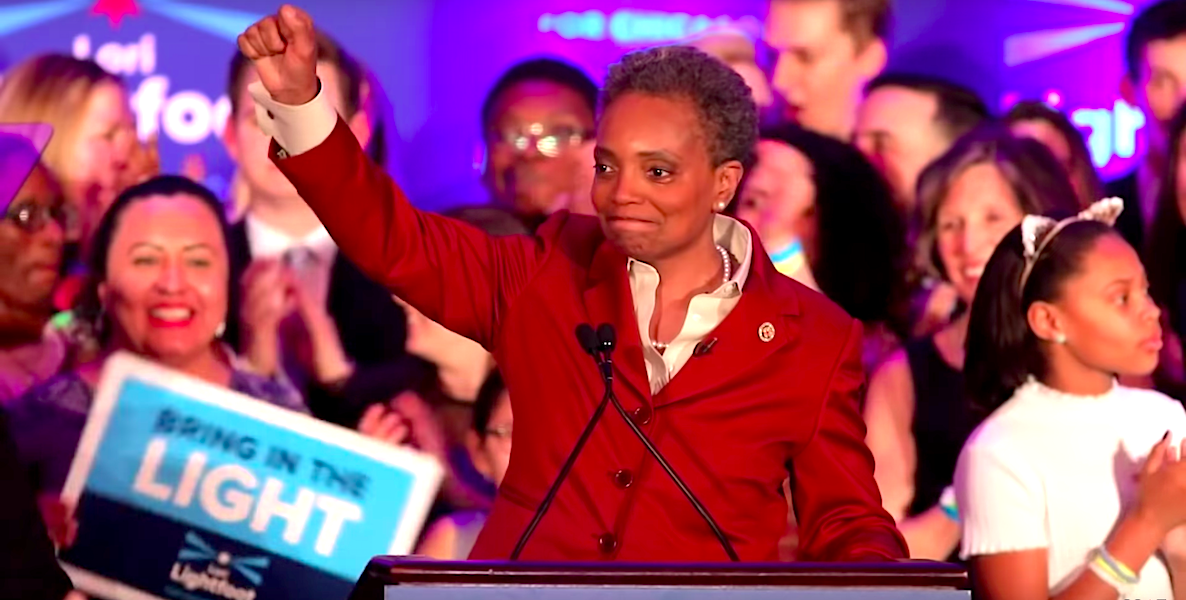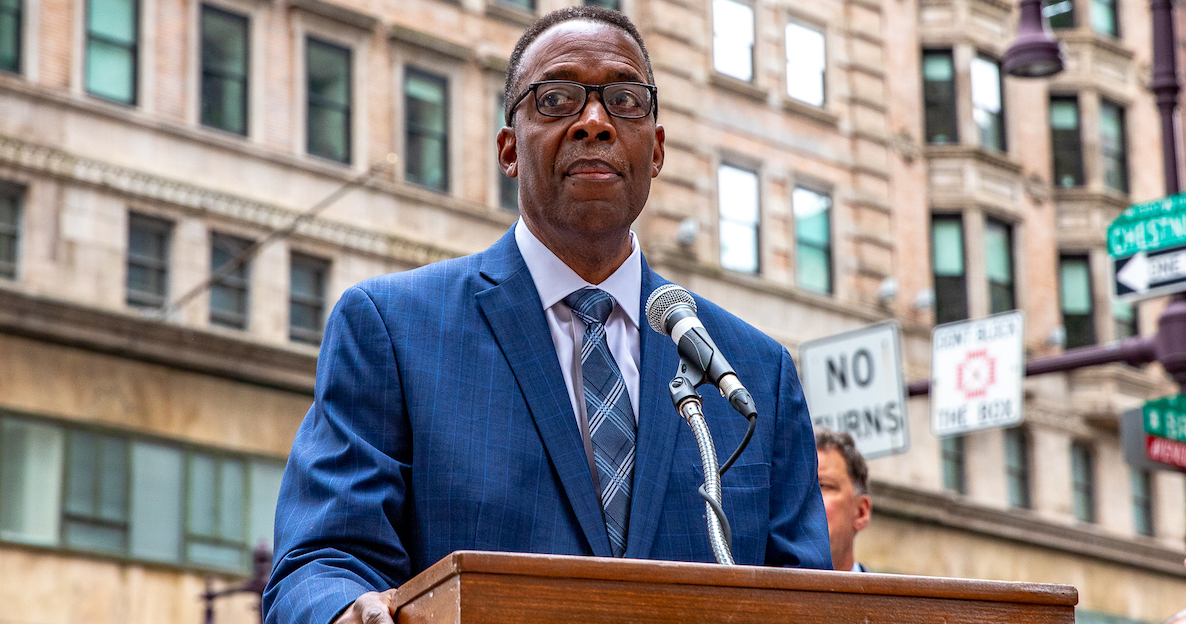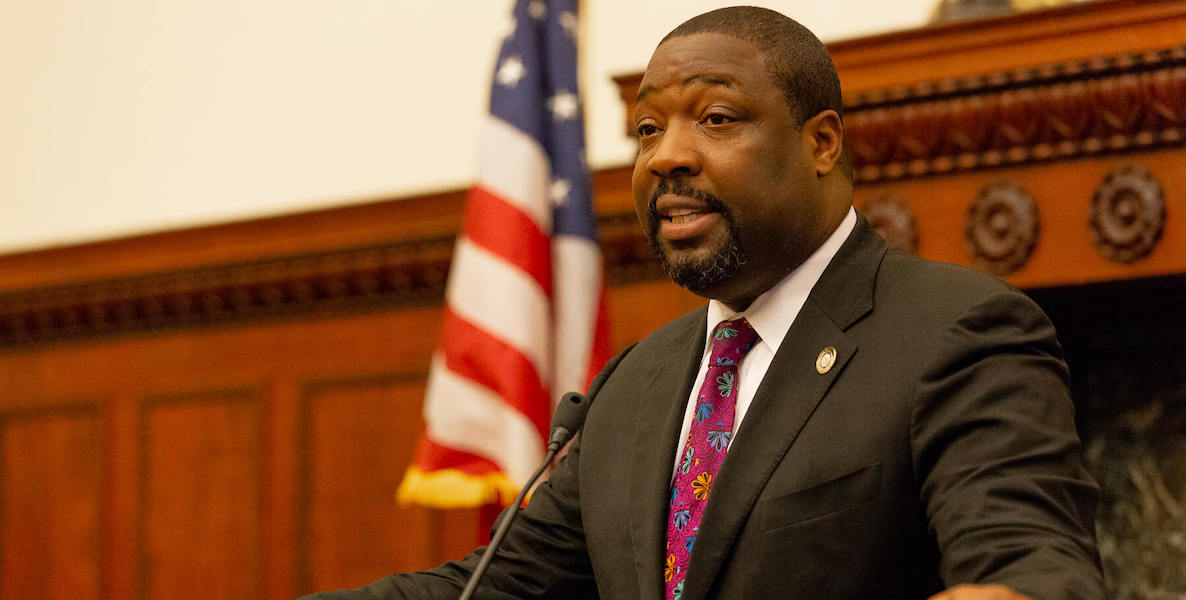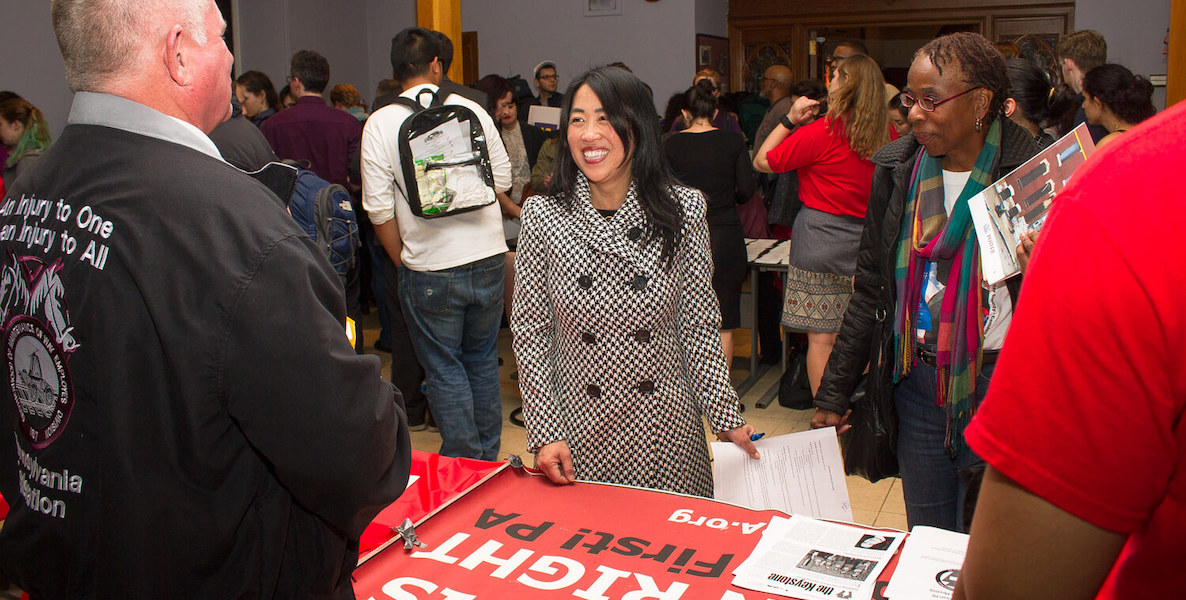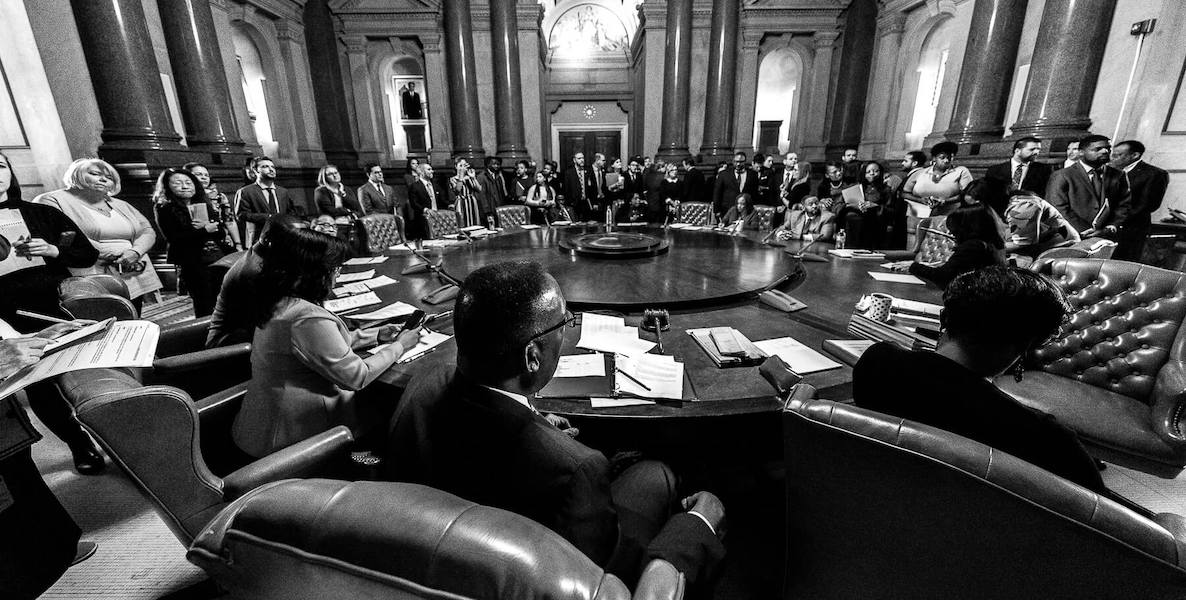to this story in CitizenCastListen
Actually, not at all. The point is more fundamental: Locally, at least, that old paradigm no longer applies.
In a corrupt, one-party town, run for and by the same permanent establishment—a cast of characters numbering in the hundreds—the prevailing dispute is not about something as high-minded as political values or philosophy.
Our biggest threat comes not from the usual set of isms that define our politics: liberalism, conservatism, socialism. No, our biggest challenge is a different ism: transactionalism. Philly has long had two sets of rules—one for insiders and their self-dealing transactions, and one for those not in the room where it all happens.
A prime example arose just this week.
Reading the long-awaited federal indictment of Councilman Kenyatta Johnson and his wife Dawn Chavous feels like deja vu all over again. Like the indictments of labor leader John Dougherty and Councilman Bobby Henon (that’s right, 12 percent of Council is now under federal indictment. Go Philly!), it indicts not only its alleged bad actors, but a whole system of governance.
If you’re a hard-working, tax-paying, law-abiding constituent, how do you get your elected official to work as hard for you as he apparently does for varied ultra-connected private interests?
Johnson and Chavous, of course, are innocent until proven guilty, as are Dougherty and Henon. But I’m talking about something beyond guilt or innocence.
About Johnson’s IndictmentLearn More
Reading about Dougherty, Henon and Johnson working their magic—weaponizing a city agency like L & I in Henon’s case on Dougherty’s behalf, or manipulating land use dispositions in his district on behalf of a supporter in Johnson’s—makes you wonder: Even if it’s legal to use the power of councilmanic prerogative to benefit a political benefactor that hired his wife as a consultant in what the feds characterize as a no-show job, surely it’s wrong, no?
If you’re a hard-working, tax-paying, law-abiding constituent, how do you get your elected official to work as hard for you as he apparently does for varied ultra-connected private interests?
Remember, Johnson has already lost a civil court case over his use of councilmanic prerogative, the near-absolute power district councilmembers wield when it comes to land-use disposition in their districts.
The facts are in: The practice, not codified in law or charter, stalls common good development, diminishes professional zoning and planning, and can lead to a culture of de facto extortion.
Over the years, after all, it’s served as an invitation for lawmakers (George Schwartz, Rick Mariano, Leland Beloff and, now, potentially, Johnson) to be sent off to the Big House for either shaking down developers or working as their proxies in violation of the public trust.
We have no shortage of supposed crusaders who suddenly go all vocal fry when the subject of their colleagues’ insider ways comes up. Instead, it’s much safer to try and take national progressive programs and jam them through a local cookie-cutter.
Our status as the nation’s premier political-perp-walk city would seem secure, no? Think of it: We live in a town where the last district attorney is currently wearing an orange jumpsuit, (and not for the fashion statement), following in the footsteps of the state’s former attorney general.
A state rep (who used to work in our current DA’s office) just pled guilty to theft and perjury charges, and our former congressman—once the fresh face of reform—is still on a 10-year involuntary vacation.
Given such a dispiriting litany, you’d think progressives would be all over fixing 7 ways to play watchdogDo Something
As I covered last week, we have no shortage of supposed crusaders who suddenly go all vocal fry when the subject of their colleagues’ insider ways comes up.
Instead, it’s much safer to try and take national progressive programs and jam them through a local cookie-cutter. Let’s zero in on two such case studies.
Councilman Mark Squilla has led the local war on plastic bags, in keeping with a nationwide progressive trend; more than 240 cities and counties have passed laws banning them in the last 13 years. There’s one problem, though: In the rush to hop on the bandwagon and enact the ban, inconvenient facts have often fallen by the wayside.
Fact is, the efficacy of such bans is no open-and-shut case. A recent study of the plastic bag bans in California found a disturbing unintended consequence: Turns out, people who would reuse their plastic shopping bags for lining trash bins or picking up dog poop made a run on plastic garbage bags to the tune of a 120-percent increase.
These are heavier, mind you, so they use considerably more plastic. Moreover, the ban on plastic bags led to a surge in paper trash bag sales—which a number of studies find to be more harmful to the environment, given the cutting down and processing of trees involved with that activity.
Maybe, instead of copying and pasting the language of progressive bills in other cities onto their letterhead, our elected progressives ought to take some risk and spend some political capital by throwing back the shades, opening the windows, and finally letting the sun shine in.
Why bring this up? Because, as with the banning of plastic straws, the politics of good intentions does not equate to the change we need. And it’s more deleterious even than that: The notion that intractable problems like the decimation of our environment have quick, easy fixes actually fuels more inaction. It’s the illusion of progress, at a time when we need groundbreaking global action.
Or let’s take the issue of rent control, which newly-minted progressive Councilwoman Kendra Brooks has made her signature issue. As Steven Malanga outlines in City Journal, “decades of bipartisan research tell us that controls on rent suppress real estate values, diminish property taxes, and reduce investments in housing.”
He walks us through how rent control actually fueled displacement in the middle of the 20th century in New York, squeezing “landlords unable to increase rents for maintenance, repairs and fuel prices until owners began abandoning buildings by the thousands during the late 1960s, driving out middle-class residents, stranding the poor in deteriorating apartments and creating immense tracts of poverty in formerly stable blue-collar neighborhoods.”
Of course, there is no political risk to vilifying landlords or declaring a fatwa against plastic bags. But it’s not particularly courageous. You know what would be? Saying no to your friends and taking on the interests that put you where you are. How could our electeds do that? By adopting a truly reform agenda.
The Fix from Larry PlattRead More
He should see it as an opportunity for sunlight. It’s now 106 years since Justice Brandeis wrote the brilliant phrase “sunlight is the best disinfectant” in his book, Other People’s Money.
That, of course, is a delicious title for us, given that that was the phrase—“OPM” for short—former State Senator Vince Fumo would use to boast of how he paid for his lavish lifestyle and all those vacuum cleaners, Tiki torches, and bobblehead dolls documented in the case that, this being Philly, sent him away for a while, too.
A century after Brandeis wrote those words, the indictments and the almost daily drumbeat of our headlines suggest we’re still in the dark. Maybe, instead of copying and pasting the language of progressive bills in other cities onto their letterhead, our elected progressives ought to take some risk and spend some political capital by throwing back the shades, opening the windows, and finally letting the sun shine in.
The Fix is made possible through a grant from the Thomas Skelton Harrison Foundation. The Harrison Foundation does not exercise editorial control or approval over the content of any material published by The Philadelphia Citizen.
Want more? Check out these related articles:
- Why term limits could be just the City Council fix we need
- An attack on the city controller Kenney’s allies is straight from a familiar Philly playbook
- Can the Chicago’s recent mayoral election serve as an object lesson for Philly?



